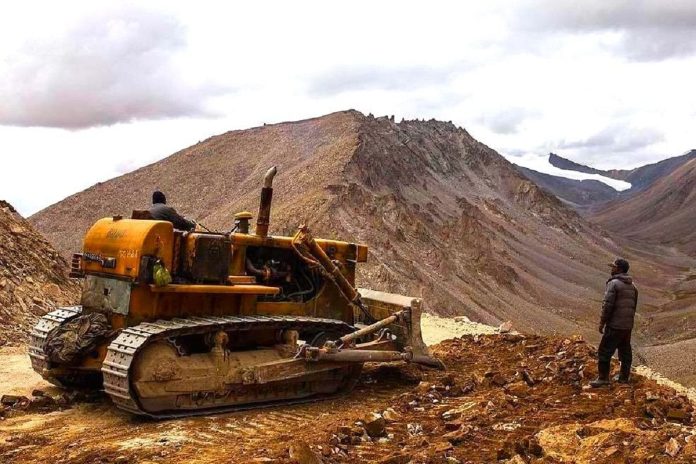Indian government has introduced a new policy aimed at ensuring that the thousands of casual labourers employed by the BRO to develop infrastructure in the country’s most remote regions, are granted dignity in the event of their demise.
On Sunday, Defence minister Rajnath Singh approved the policy for the preservation and transportation of the mortal remains of ‘casual paid labourers’ to their native place, reports Hindustan Times.
The policy also raises the funeral expenses from Rs 1,000 to Rs 10,000 for those whose last rites are performed at the worksite.
This highlights the dangerous nature of the work these workers undertake in challenging terrains.
Previously, the facility of preserving and transporting mortal remains at government expense was only available to BRO’s General Reserve Engineer Force (GREF) personnel.
This is a significant development as the Border Roads Organisation (BRO) employs around one lakh casual workers for constructing border infrastructure in various regions, including Ladakh, Arunachal Pradesh, Sikkim, Uttarakhand, and Himachal Pradesh.
These projects include the construction of roads, bridges, tunnels, airfields, and helipads.
By implementing this new policy, the Indian government aims to ensure that the casual workers of BRO receive the respect, acknowledging their invaluable contributions to the nation’s infrastructure development.
These workers collaborate with BRO personnel in challenging weather conditions and demanding work environments, which sometimes lead to casualties.
The statement issued, said, “In case of their death, the burden of the transportation falls on the bereaved families. Due to lack of financial resources, the families of the deceased are unable to bear the airfare or even transportation cost by road in most conditions. A bereaved family often finds it extremely difficult to afford the funeral and other related expenditure.”
During a visit to forward worksites, the defence minister personally witnessed the arduous working conditions faced by these workers. In response, the minister directed BRO to implement appropriate welfare measures.
Officials have outlined several welfare measures in place for workers stationed in forward areas. These measures include the provision of portable cabins, prefabricated shelters, bio toilets, snow tents with insulation panels, special winter clothing, healthcare facilities, and makeshift schools for their children.
The BRO has been at the forefront of India’s border infrastructure development, completing nearly 300 crucial projects over the past three years at a cost of Rs 8,000 crore.
On 12 September, Singh dedicated 90 projects to the country, executed by BRO at a cost of Rs 2,941 crore to boost military mobility, logistics support for deployed forces, and movement of civilians in border areas.
India has been actively developing its infrastructure in its farthest frontiers in response to China’s efforts to develop its border areas. The military’s readiness is heavily dependent on the infrastructure in the challenging terrain of the forward areas.


